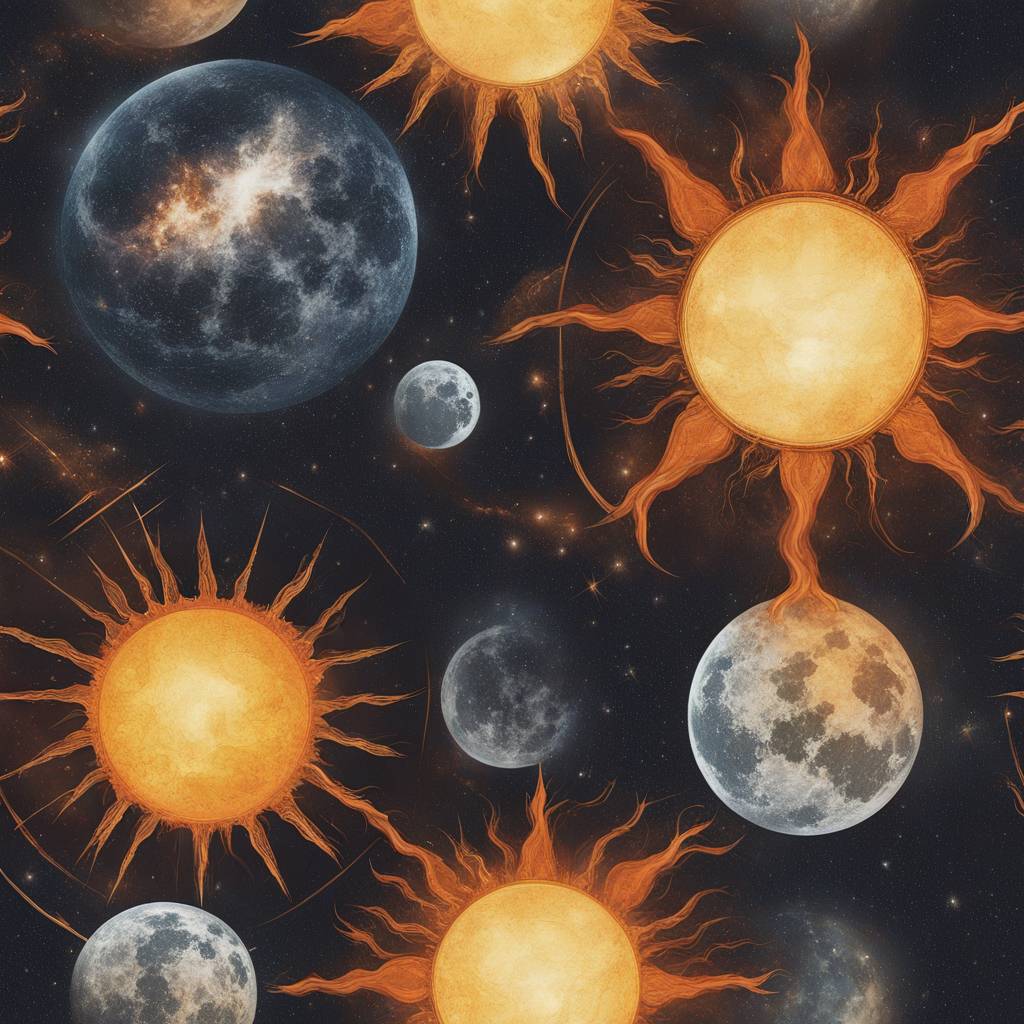Solar eclipses have played a significant role in the beliefs and practices of many religions throughout history. In Tibetan Buddhism, solar eclipses are seen as auspicious days for spiritual practice, with the merit generated during these events being multiplied immensely. Activities such as chanting mantras and sutras are recommended on these days in order to harness the energy of positive karmic results. In Christianity, some believers have linked eclipses to biblical prophecies, such as the darkening of the sun during the crucifixion of Jesus. While there may not be a direct correlation between solar eclipses and this event, some see the darkness as a metaphor for spiritual transition and rebirth.
Hinduism explains the occurrence of eclipses through ancient legends where the actions of gods and demons lead to the swallowing of the sun and moon, causing both solar and lunar eclipses. Hindus generally see eclipses as a bad omen and undertake practices such as fasting, bathing, and offering prayers for protection. Temples are often closed during eclipses, and devotees gather at pilgrimage sites to pray, meditate, and chant mantras to ward off evil. In Islam, a solar eclipse is viewed as a sign from Allah and a time for prayer and seeking refuge in God. There are specific prayers and rituals associated with the eclipse, aimed at emphasizing devotion to God and the importance of his creation.
The Talmud, a collection of Jewish religious writings, considers eclipses to be ill omens for the world. While the Talmud does not offer specific blessings for eclipses, some modern Jewish scholars suggest that eclipses should be viewed as opportunities for introspection and prayer. Rabbi Menachem Posner emphasizes the need for increased prayer and reflection during eclipses, as they serve as reminders that there is always room for spiritual growth. Rabbi Mordechai Becher highlights Judaism’s connection with astronomy and suggests that eclipses are a way for God to remind humanity of the choices they make and the impact they have on their spiritual connection.
In conclusion, solar eclipses have been viewed through different religious lenses throughout history, with each faith interpreting these cosmic events in their unique ways. Whether seen as signs from God, metaphors for spiritual transitions, or opportunities for reflection and introspection, eclipses hold a special significance for believers across various religions. While the specific practices and beliefs associated with eclipses vary among different faiths, the common thread is the recognition of the power and significance of these celestial events in shaping religious beliefs and practices.













